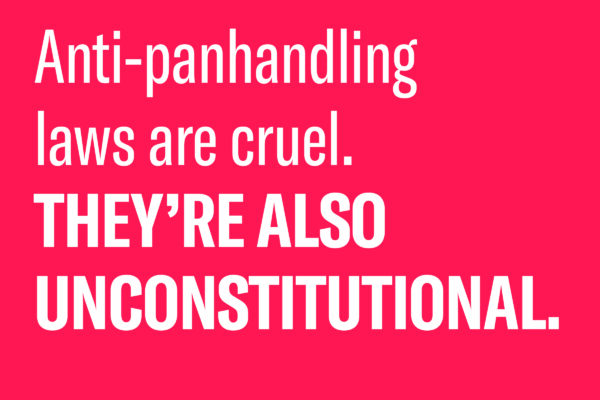The American Civil Liberties Union of West Virginia (ACLU-WV) informed the city of Dunbar today that its proposed ordinance restricting panhandling in city limits is unconstitutional.
Such laws also make for bad public policy, ACLU-WV Legal Director Loree Stark said.
The U.S. Supreme Court and lower federal courts have repeatedly affirmed that peaceful solicitations for charitable purposes are protected by the First Amendment, Stark said in a letter to Mayor Bill Cunningham and members of Dunbar City Council.
Stark highlighted enforcement alternatives to anti-begging laws where public safety is concerned, pointing out that state code already prohibits harassment, assault and battery, extortion, blocking an intersection, and jaywalking, among other offenses.
Multiple studies show that anti-panhandling laws also do nothing to address the underlying causes of homelessness, and that they actually waste precious public resources.
“Poverty, homelessness, and drug addiction are all serious problems in West Virginia, and many people who panhandle do so because of economic need, mental illness, or to feed an addiction,” Stark said. “However, criminalizing panhandling does not cure poverty or provide resources for individuals with addiction or mental health problems. Measures such as the proposed ordinance merely move the needy out of sight and are not feasible long-term solutions for dealing with poverty.
“The criminalization of panhandling is aimed only at the visual ramifications for others and does nothing to address the root causes or aid those who are suffering,” she said. “It also further exacerbates the challenges beggars already face on a daily basis.”
Funds used to enforce this ordinance would be better spent on services that address homelessness, she said.
ACLU-WV will monitor actions taken by Dunbar City Council regarding the proposed ordinance.

